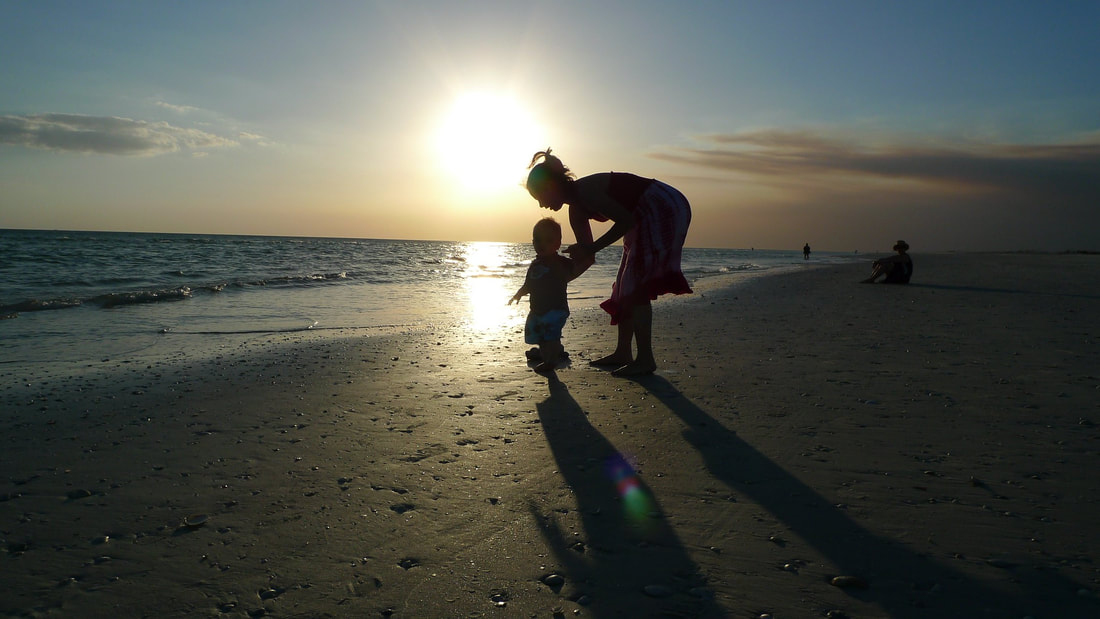|
By Roxanne Gentry, Marketing Associate It was 2019 when Mrs. Norman* received a call from a police officer in Nebraska. “Mrs. Norman, we’re going to close your son’s case,” he said. She was instantly on alert. When your adult son has been missing for five years, it’s difficult not to expect the worst. I recently spoke with "Kay" and "Jack Norman," who were generous enough to talk with me about their journey with their son, "Tom," who struggled with alcoholism and went missing in 2014. For years, they had no idea where he was. They even gave DNA samples in hopes of yielding the smallest of clues, or at least the difficult peace of closure. But the years went by without answers. Even when things seem most uncertain, the hope and love of parenthood never dies. The Normans never changed their landline. The number had been the same since before Tom was born. Whenever the phone rang, they hoped it would be him. Every year on his birthday, they would come to JOURNEYS with a donation. As far as they knew, he was homeless, and it felt like a gesture of hope and a way to help others like their son. The Nebraska police officer on the phone paused before speaking again. She remembers that pause and how filled it was with both dread and hope. “Mrs. Norman, your son has been found. Would you like to talk to him?” She did, and after they finally got to hear his voice, she and her husband couldn’t move fast enough. They went to church to give thanks before getting directly into their car to drive to Nebraska where their son had been living, they learned, under bridges. Finding their son was not, however, the end of the journey. It was just the beginning. After reuniting with his parents, Tom Norman decided to stay in Nebraska. He had a support system there, he said, and had begun attending AA meetings. Despite having his identification and many of his belongings stolen, he had odd day jobs that got him by. But then the pandemic hit. With the world shut down, the people who needed them most couldn’t access the resources and support they needed for recovery. “I learned while listening to the radio,” Mrs. Norman says, “that people battling addictions and people with mental health issues were unable to get to their meetings. So, I called my son and asked him, ‘Tom, when was the last time you went to your AA meeting?’” “They’re there if I need them, Mom,” he replied. “Just a phone call away.” He came home to Illinois for the first time in years a few months later. Unfortunately, he ended up in the hospital for four days. When he arrived at his parents’ home, he was sweating, throwing up, and had no appetite. They realized, eventually, that he had consumed quite a bit of alcohol right before coming over with the intention of abstaining for the whole visit. But that only led to what Mrs. Norman describes as “full-blown withdrawal.” Tom Norman’s story illustrates the brutal complexities of the path into and out of homelessness. The reasons that people become homeless are rarely simple, and as a result, the path out is never straightforward. "He was an Eagle Scout," Mrs. Norman tells me. "Now he's living in a halfway house in Burlington." After Tom was discharged from the hospital, the doctors – everyone, really – told him he needed to detox. But he fought it, and he fought it hard. He wanted to go back to Nebraska, but his friends there made it clear to him that he had nothing to come back to. His path could only be forward. He moved into the halfway house in November of 2021 after achieving sobriety the previous month. The hospital that treated him during his withdrawal forgave his bill. He now has a full-time job and walks four miles to and from work. It almost goes without saying when his mother says, that “He can only handle things one day at a time.” These days, he is saving money to move out of the halfway house and find a place of his own. Halfway houses are just that – half of the solution. They provide shelter and resources, but, Mrs. Norman notes, it’s a very transient way of life. People don’t stay long, and friendships don’t have time to develop. “He’s still broken in so many ways.” But last fall Tom celebrated a year of sobriety, and he’s going strong. “I said to my son that some people celebrate sobriety more than their birthday. Do you know what he said to me? He said, ‘Mom, I celebrate every day.’” His journey is far from over, but his parents are hopeful. Tom is hopeful. Of course, that hope wasn’t always so bright, especially for Tom. Many people struggling with addiction, not to mention people experiencing homelessness, are faced with chronic feelings of shame. And when hope is at a premium, it can feel like a burden. It’s necessary to move forward, but it can be difficult to cultivate and, what’s more, hope can feel like a risk when the potential for disappointment seems so real. Recently, Mrs. Norman asked her son why he never called the whole time he was missing. It wasn’t that he forgot their number, he told her. The real reason was so much more difficult to hear. “Mom, I didn’t think you would ever want to see me again.” Sometimes, when we are at our lowest point, we need someone else to take the first step into hope for us. For Mrs. Norman, that’s what it means to be a parent. “I hugged him close,” Mrs. Norman tells me, “And I said to him, ‘Banish that thought. No matter what you go through, no matter what you do, you are loved unconditionally.’” That isn’t to say that there haven’t been hiccups along the way, moments when both mother and son still struggle to understand each other’s painful experiences. Mrs. Norman admits that she can’t help but prod him about getting the help he needs and to talk to someone about how he’s feeling, whether that’s through a therapist or within the faith community she hopes he’ll one day return to. “I know I agitate him. I think it’s just part of being his mom.” It is very clear just by looking at Mrs. Norman, who has remained measured and calm over the duration of our conversation even as it has taken emotional turns, that being a parent doesn’t stop when a child turns eighteen. Mr. Norman, too, though speaking very little, has a face carved with lines that betray years of anxiety. Yet his eyes are big and bright and look hopeful, even if they are shaded by a furrowed brow of practical concern. For the Normans, faith – in God, in their son – is unshakeable, but hope is a choice they make every day. *Names and some identifying details have been changed to ensure privacy.
Author’s Note: While Tom Norman is not a JOURNEYS client, his experiences reflect those of many JOURNEYS clients. Kay and Jack Norman have been connected to JOURNEYS through the service they do with their faith community and were willing to share their story about how homelessness has touched their lives in order to shine a light on homelessness in our shared community. We at JOURNEYS thank them for their time and willingness to speak with our development team.
1 Comment
 Our Ninth Annual Women's Luncheon is next month on Wednesday, April 26th! Today is also International Women's Day, a day that celebrates all women, and brings awareness to issues related to women, like gender equality, domestic violence, reproductive topics, and women's contributions to society, politics, and culture. This month, I was able to have a conversation with Katie Barrett Ford, JOURNEYS' Woman of the Year 2023. Katie is a true example of what it means to be a woman who is also a professional powerhouse and community advocate. She currently serves on JOURNEYS' Advisory Board, but has been involved with JOURNEYS since 2015. We talked about her history with JOURNEYS, how homelessness affects our shared community, and the importance of our Women's Luncheon as an opportunity to bring attention to the experiences of women and children experiencing homelessness or at risk of becoming homeless. Congratulations, Katie, on being awarded Woman of the Year, and thank you for your continued support and advocacy for our neighbors in need! "My mom was involved with JOURNEYS before it was even called JOURNEYS | The Road Home. She set a strong example for what it means to give back to her community. I learned a lot about giving back from watching her help with PADS at various churches in the area for over twenty-five years. I was born in Arlington Heights, but I ended up living downtown and then all over the world. Eventually I returned to Arlington Heights and have lived here now for quite some time. I had a successful career, an amazing family, and I was looking for a way to give back. So, when Beth reached out to me about getting involved with JOURNEYS, I truly believed that it was divine intervention. I've been in the media marketing profession for 29 years. When Beth brought me on, she had a specific remit in thinking about how we can drive JOURNEYS marketing capabilities. I secured free media for our biggest fundraising event of the year, Bid for HOPE, including billboards and bus shelter ads to boost awareness. I’ve since been able be a point of contact for JOURNEYS when it comes to expanding and developing its marketing and messaging, and I’ve always been happy to parlay my expertise. I think it’s everyone’s responsibility to give back however they can. Many people don’t think there’s homelessness in the northwest suburbs. But poverty is right in our backyard. And as a community, that’s where our obligation is – and exactly where JOURNEYS lives and works. We were finally able to build a beautiful new facility where there's so many services to help people get back on their feet. JOURNEYS has never had this kind of state-of-the-art facility before. What’s truly incredible is that it’s a community initiative created by neighbors for neighbors. JOURNEYS helps people no matter who they are. Poverty isn't specific to a gender or an age group; it’s prevalent across all ages, genders, and races. JOURNEYS’ Women’s Luncheon highlights how our demographics transcend many of the stereotypes of homelessness and how our clientele has evolved over the years. Homelessness is often represented by a struggling adult male, but our data show that 43% of our clients identify as women and 25% are children. JOURNEYS serves not only individuals, but also families, something that’s important to highlight as an agency serving a large suburban area. As an agency, JOURNEYS is sustained by a lot of female leadership. Beth, our Executive Director, is an amazing leader. I admire her passion and persistence. Her dogged tenacity is what brought JOURNEYS to where it is today. That’s why it’s an honor to be recognized by her and JOURNEYS as Woman of the Year. It’s a role I envision as one of advocacy. I want to help make connections and drive awareness. It’s the natural inclination of people to want to do good. It’s human nature to want to help. I want to make it as easy as possible for people to get involved and give back, whether that’s financially or with their time. That’s what JOURNEYS is all about: giving back. Making connections. Advocating a “never-take-no" attitude for our clients on their journeys home and for the wider community as we support our neighbors. It takes a village." Transcribed and arranged by Roxanne Gentry, Marketing Associate |
MissionOur blog contains original writing on issues related to homelessness, community happenings, and unique agency stories. Archives
June 2023
Categories
All
|
|




 RSS Feed
RSS Feed

